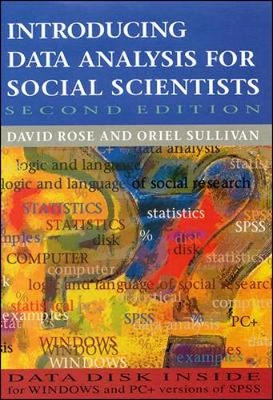The revised and updated edition of this highly successful text is designed for social science students taking their first course in quantitative data analysis. It requires no previous knowledge of statistics or computer use, nor any mathematics beyond an elementary level. The principles of analysing data in simple stages are clearly explained, and it provides an introduction to using computers and SPSS, the most widely used statistical package in the social sciences. This second edition includes both WINDOWS and PC+ versions of SPSS, as well as a glossary of statistical terms. The emphasis throughout is on understanding the underlying principles and on illustrating these with simple but realistic examples that stress both the role of theory in social research and the logic of data analysis.
The first four parts of the text give students a firm grasp of the logic and language of social research; preparation of data and basic ideas in computing; descriptive statistics for both single variables and bivariate analyses; and inferential statistics. The final part introduces some of the most useful multivariate techniques and discusses the problems and potential of longitudinal studies. Exercises and examples from the British Class Survey and the British Household Panel Study complete the text, and key subsets of the illustrative data is provided on a free floppy disk inside the volume. The complete package is an invaluable beginner's guide for students in sociology, geography, political science, social policy, social psychology, management and related disciplines.
Åtkomstkoder och digitalt tilläggsmaterial garanteras inte med begagnade böcker





















